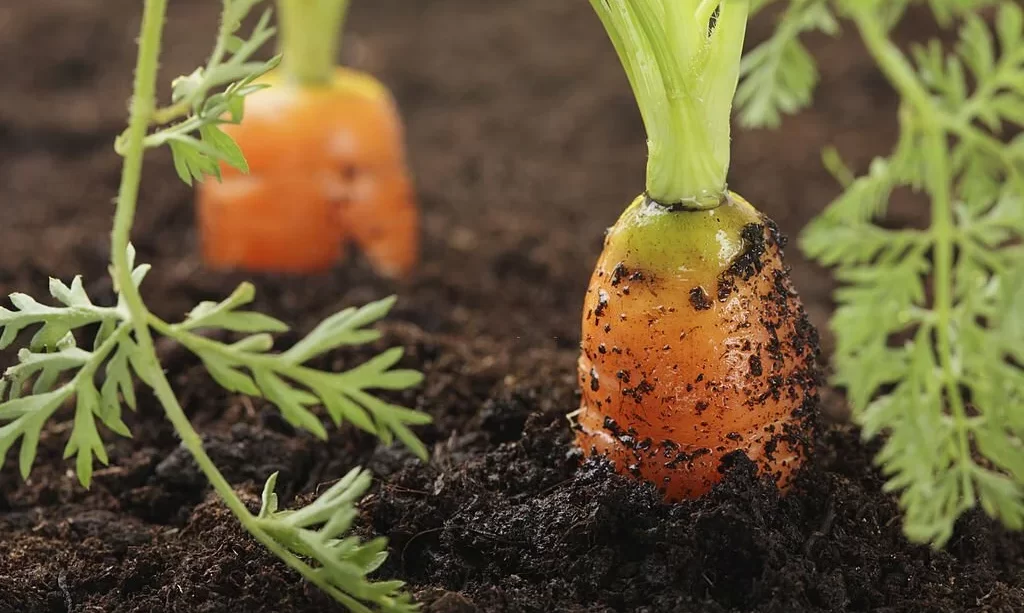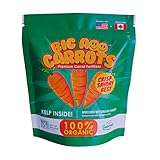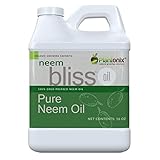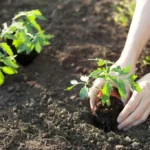When it comes to gardening in North Carolina, timing is crucial, especially when planting carrots. Carrots are a beloved vegetable, loved for their sweet, crunchy goodness, but to grow them successfully in the Tar Heel State, you need to know the right time to sow those seeds. In this guide, we’ll walk you through the ideal planting windows for North Carolina, ensuring that you can enjoy a bountiful carrot harvest. Whether you’re a seasoned gardener or just starting, this information will help you cultivate your carrots with ease.
- Carrot seeds garden seeds vegetable seeds bulk
North Carolina’s Climate
North Carolina’s climate is as diverse as its landscapes. From the mountains to the coast, this state experiences a range of weather patterns. In the western part, you’ll encounter a more mountainous terrain with cooler temperatures, while the eastern regions have milder winters and warmer summers. Understanding these climate variations is essential when determining the best time to plant your carrots.
The state’s climate can be broadly divided into three regions: the Mountains, Piedmont, and Coastal Plain. The Mountains have a cooler climate and shorter growing season, making them ideal for certain carrot varieties. The Piedmont region has a transitional climate, while the Coastal Plain enjoys a longer growing season and milder winters. Knowing where your garden is located within North Carolina will help you make the right decision for when to plant your carrots.
Carrot Varieties for North Carolina
Selecting the right carrot variety is vital for a successful harvest in North Carolina. Fortunately, there are several types well-suited to the state’s varying climates. For the mountainous regions, where the climate tends to be cooler, shorter varieties like “Scarlet Nantes” and “Paris Market” are excellent choices. They mature more quickly and can thrive in the cooler mountain air. In the Piedmont and Coastal Plain regions, where the climate is milder, longer varieties like “Imperator” and “Danvers” can produce impressive, full-sized carrots. When choosing a variety, consider your local climate and the type of carrot you prefer – from sweet and tender to larger, hearty options. By selecting the right carrot variety, you’re setting the stage for a successful carrot-growing venture.
- radish seeds garden seeds vegetable seeds bulk micro green microgreens alfalfa
Spring Planting
Planting carrots in the spring in North Carolina is a fantastic opportunity to kickstart your garden. As the weather begins to warm and frost becomes less of a concern, typically between late March and early April, it’s the perfect time to sow carrot seeds. The soil should be workable and not overly soggy to ensure good germination.
Start by preparing the soil. Carrots prefer loose, well-draining soil. Work in some compost to improve the soil structure and fertility. Then, sow the carrot seeds directly into the garden bed, about half an inch deep, spacing them according to the seed packet instructions. Keep the soil consistently moist to aid germination.
Once the carrot seedlings are a few inches tall, thin them out, leaving about 2-3 inches between each plant to allow them room to grow. Regularly weed your carrot bed, as these veggies don’t like competition. With proper care and the right timing, your spring-planted carrots should be ready to enjoy in late spring or early summer. It’s a rewarding way to kick off the gardening season!
- Grow a Rich Garden: Big A Carrot Fertilizer, your ultimate organic vegetable fertilizer, guarantees a flourishing harvest for all your vegetables, with a special emphasis on carrots. Maintaining 100% organic integrity and enriched with essential nutrients, this fertilizer for vegetable gardens is specifically designed for a thriving garden, ensuring both productivity and safety.
- Unique Nutritious Blend: Our organic fertilizer for vegetables boasts a pioneering blend, featuring the exclusive inclusion of kelp. This proprietary mix enhances the growth of carrots and other root vegetables, ensuring they are not only larger but also more flavorful and nutritious. It is both a potent phosphorus fertilizer for plants as well as a potassium fertilizer and it actively supports optimal plant development, resulting in robust yields. This organic potassium fertilizer not only work
- Contains All the Nutrients: A comprehensive solution, the Big A Carrot Fertilizer, fortified with kelp, provides major nutrients such as nitrogen and phosphorus, coupled with secondary nutrients—calcium and magnesium. This vegetable fertilizer for a garden ensures a holistic approach to plant growth, guaranteeing rich and healthy yields.
- Perfect for All Veggies and Fruits: Tailored for a variety of crops, our vegetable fertilizer stands out in nurturing diverse vegetables and fruits, including carrots, yams, beets, onions, and more. An ideal garden fertilizer for outdoor vegetables, it actively promotes the growth of your favorite produce.
- Highly Soluble Formula: The highly-soluble powder formula of Big A Carrot Fertilizer facilitates rapid nutrient absorption, ensuring essential elements reach the roots swiftly. Its user-friendly application directly to the soil before seeding guarantees a seamless gardening experience, making it the go-to choice for a hassle-free and successful harvest. Whether it is a vegetable fertilizer for outdoors or an indoor fertilizer you need, Big A Carrot fertilizer serves both purposes.
Fall Planting
In North Carolina, fall planting is another excellent opportunity to grow delicious carrots. As the temperatures start to cool down, usually in late summer, from August to September, the soil becomes more accommodating for carrot seeds. Fall planting has its unique advantages. The milder temperatures and consistent moisture make for optimal growing conditions.
To get started with fall planting, prepare your garden bed just as you would for spring planting. Choose carrot varieties that can withstand cooler weather, such as “Bolero” or “Autumn King”. Plant the seeds about a quarter-inch deep, following the seed packet instructions for spacing. Keep the soil evenly moist to aid germination.
As fall progresses, your carrot crop will thrive and sweeten as they experience cool nights. With a layer of mulch to protect against frost, you can often harvest crisp, sweet carrots well into the winter months. Fall planting allows you to enjoy fresh carrots during a different season, extending the joy of homegrown produce.
Overcoming Challenges
While growing carrots in North Carolina can be rewarding, it’s not without its challenges. Pests and diseases can pose threats to your carrot crop. Two common pests to watch out for are carrot rust flies and aphids. To tackle these issues, consider using organic solutions like neem oil or row covers to protect your plants.
Diseases like leaf blight and root rot can also affect carrots. The key to preventing these problems is maintaining good garden hygiene. Ensure proper spacing between plants for good air circulation, and avoid overhead watering, as it can promote disease. When you notice any signs of trouble, promptly remove affected plants to prevent further spread.
So, with some vigilance and care, you can overcome these challenges and enjoy a successful carrot harvest in North Carolina. By choosing the right planting time, varieties, and employing pest and disease management, you’ll be well on your way to a bountiful carrot garden.
- 100% Pure Neem Oil Extract – Plantonix Neem Bliss is pure, unrefined neem oil that’s been freshly extracted from the seeds of the neem tree. Every bottle is produced with zero additives or synthetic ingredients, ensuring a highly concentrated and effective neem herbal supplement with a huge range of benefits.
- Expertly Crafted & Harvested – Neem Bliss is carefully sourced from regions in India which are renowned for growing high quality neem seeds. Thanks to our meticulous methods of extraction and cold-pressing, Neem Bliss offers longer-lasting benefits than other brands who dilute their neem oil with fake synthetic ingredients.
- Natural & Cold Pressed – Our neem seed oil is 100% cold pressed to preserve more of the oil’s natural nutrients and bioactive compounds for maximum effectiveness. Cold pressed neem oil is more potent and provides more effective results for health and beauty applications than other oils and supplements.
- Rich in Vitamins & Nutrients – For thousands of years, neem oil has been revered for its herbal and cosmetic qualities, making it a valuable addition to your daily wellness routine. The natural blend of vitamins, fatty acids, and antioxidants work together to reduce dryness, redness, and itchiness, giving the appearance of healthy skin.
- Easy to Use – When used as directed, and in diluted forms, neem oil is generally considered safe for use around homes and pets due to its natural composition. Because our neem oil is so pure and undiluted, it may solidify at low temperatures. If this happens, simply place the bottle in warm water until it thaws.
Harvesting and Enjoying Your Carrots
The moment you’ve been waiting for has arrived: it’s time to harvest your homegrown carrots. But how do you know when they’re ready? Carrots are typically ready to harvest when they reach the desired size, usually around 1/2 to 3/4 inches in diameter for most varieties. Gently pull a carrot from the ground to check its size, and if it looks good, it’s time to harvest the rest.
To harvest, use a garden fork or trowel to carefully loosen the soil around the carrots, making it easier to pull them out. Be gentle to avoid damaging the roots. Once harvested, brush off excess soil but avoid washing them until you’re ready to use them.
Now, for the best part – enjoying your carrots! Whether you prefer them raw as a crunchy snack or cooked in a delicious recipe, the taste of freshly harvested carrots is unmatched. Their natural sweetness and crisp texture are sure to please your taste buds. From garden to plate, you can savor the satisfaction of growing your own nutritious and tasty carrots.
Conclusion
In North Carolina, planting and growing carrots can be a fulfilling and tasty adventure. By understanding your local climate, choosing the right varieties, and timing your plantings for either spring or fall, you can ensure a successful carrot harvest. While there may be challenges like pests and diseases, with proper care and attention, you can overcome them.
So, whether you’re a seasoned gardener or just starting, get those carrot seeds in the ground at the right time, and soon, you’ll be reaping the rewards. From the joy of watching them grow to the pleasure of harvesting and enjoying your homegrown carrots, there’s something truly special about tending to your own vegetable garden in North Carolina.







